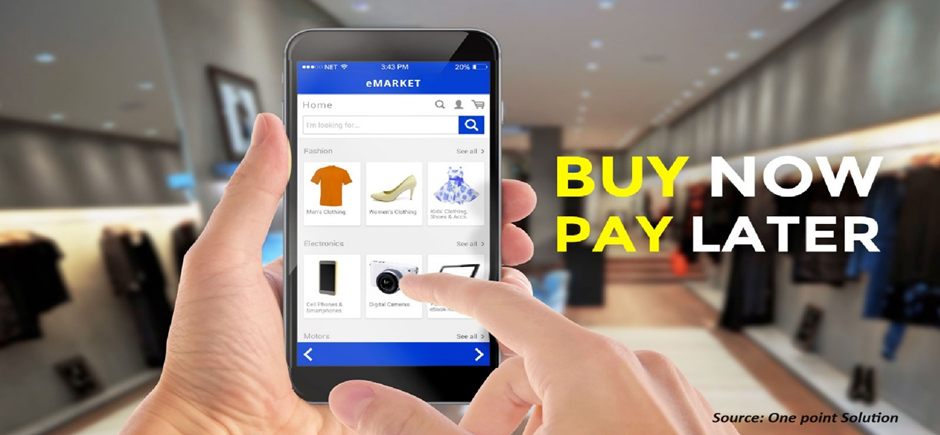
China Mobile Payment Market by Age (Generation Z, Millennials, Generation X, and Baby Boomers), by Payment Type (Proximity and Remote), and by Application (Money Transfers, Merchandise Purchases, Bill Payments, Airtime Top-ups, Ticketing, and Others) – Opportunity Analysis and Industry Forecast, 2024–2030
Industry: ICT & Media | Publish Date: 01-Sep-2024 | No of Pages: 111 | No. of Tables: 79 | No. of Figures: 44 | Format: PDF | Report Code : IC2490
China Mobile Payment Market Overview
The China Mobile Payment Market size was valued at USD 21.30 billion in 2023, and is predicted to reach USD 45.65 billion by 2030, with a CAGR of 10.6% from 2024 to 2030. The mobile payment system, also referred to as money transfer, mobile money, m-payments, electronic payments, and digital payments, facilitates financial transactions through mobile devices such as smartphones, tablets, and wearables.
These transactions occur through mobile apps or various methods such as proximity and remote transactions. Mobile payment systems comprise diverse types such as mobile wallets, mobile banking apps, and online payment services such as PayPal, Venmo, and Google Pay.
Utilizing technologies such as SMS, near-field communication (NFC), quick response (QR) codes, and others, these systems ensure smooth transactions while employing robust security measures including encryption and biometric authentication to protect personal and financial data.
Praised for their convenience, speed, security, and integration with other financial tools, mobile payment systems experience widespread adoption. Additionally, users can configure payment apps to automatically settle bills, such as utility or credit card bills, ensuring efficient financial management and preventing late payments.
Ease of Use in Mobile Payment Services Drives the Market Growth
Ease of use is one of the key drivers in the mobile payment industry, making platforms more accessible and user-friendly. Simplified interfaces, rapid transactions, and strong security features build trust and boost widespread adoption among both consumers and merchants. Clear support and education further improve user confidence and ensure a positive experience, fostering long-term engagement and growth in the market.
Rise of Cross-Border Transactions Propels the China Mobile Payment Market Growth
The ascent of cross-border transactions acts as a pivotal driver fueling the China mobile payment market growth. As globalization intensifies, businesses and individuals are increasingly engaged in international trade, commerce, and remittances. Mobile payment solutions provide a convenient, cost-effective, and efficient avenue to conduct cross-border transactions, facilitating seamless money transfers and payments across borders.
With mobile payment platforms increasingly supporting multi-currency transactions and offering competitive exchange rates, users can transfer funds internationally with ease, bypassing traditional banking intermediaries and their associated fees and delays.
Furthermore, the integration of cutting-edge technologies such as blockchain enhances the security, transparency, and speed of cross-border payments, driving further adoption. As cross-border transactions continue to expand in volume and complexity, mobile wallet providers have the opportunity to expand their global presence, driving the China mobile payment market growth, and fostering financial inclusion on a global scale.
Risks Related to Data Breaches and Cybersecurity Concerns Hamper the China Mobile Payment Market
The China mobile payment market expansion is confronted with significant challenges stemming from risks associated with data breaches and cybersecurity concerns in the country. As reliance on mobile devices for financial transactions increases, the potential for unauthorized access, data breaches, and identity theft has become a major concern for consumers and businesses.
Instances of high-profile security incidents can undermine trust in mobile payment platforms, causing users to hesitate in adopting or continuing to use mobile payment services. Additionally, regulatory bodies impose stringent requirements for data protection and cybersecurity, adding complexity and costs to mobile payment operations.
Addressing these security concerns requires robust encryption, multi-factor authentication, and proactive security measures to instill confidence in mobile payment solutions and drive the China mobile payment market growth.
The Emergence of Real-Time Payment Creates Opportunities in the China Mobile Payment Market
The rise of real-time payments presents a pivotal opportunity driving the China mobile payment market demand, ushering in a new era of speed and efficiency in fund transfers in the country. Real-time payment systems enable instant transactions between parties, offering seamless and convenient payment experiences. This advancement enables mobile payment providers to address diverse needs, whether it's splitting bills with friends, making retail purchases, or transferring funds between accounts.
Additionally, the integration of real-time payment capabilities into various industries, such as e-commerce, peer-to-peer lending, and on-demand services, fosters innovation and expands the mobile payment ecosystem. In essence, the emergence of real-time payments transforms payment processing and creates abundant opportunities for growth and innovation in the China mobile payment market.
Competitive Landscape
Various market players operating in the China mobile payment industry include Alphabet, Inc. (Google), Alibaba Group Holdings Limited, Amazon.com, Inc., Apple, Inc., PayPal Holdings, Inc., Visa, Inc., Tencent Holdings Limited (WeChat), MasterCard International, Inc., Samsung Electronics Co. Ltd., Block, Inc., and others. These key players have adopted various strategies to strengthen their market share.
China Mobile Payment Market Key Segments
By Age
-
Generation Z
-
Millennials
-
Generation X
-
Baby Boomers
By Payment Type
-
Proximity
-
Near-Field Communication (NFC)
-
Quick Response (QR) Code Payments
-
-
Remote
-
Internet Payments
-
SMS/Direct Carrier Billing
-
By Application
-
Money Transfers
-
Merchandise Purchases
-
Bill Payments
-
Airtime Top-ups
-
Ticketing
-
Others
REPORT SCOPE AND SEGMENTATION:
|
Parameters |
Details |
|
Market Size in 2023 |
USD 21.30 Billion |
|
Revenue Forecast in 2030 |
USD 45.65 Billion |
|
Growth Rate |
CAGR of 10.6% from 2024 to 2030 |
|
Analysis Period |
2023–2030 |
|
Base Year Considered |
2023 |
|
Forecast Period |
2024–2030 |
|
Market Size Estimation |
Billion (USD) |
|
Growth Factors |
|
|
Companies Profiled |
10 |
|
Market Share |
Available for 10 companies |
|
Customization Scope |
Free customization (equivalent up to 80 working hours of analysts) after purchase. Addition or alteration to country, regional, and segment scope. |
|
Pricing and Purchase Options |
Avail customized purchase options to meet your exact research needs. |
KEY PLAYERS
-
Alphabet, Inc. (Google)
-
Alibaba Group Holdings Limited
-
Amazon.com, Inc.
-
Apple, Inc.
-
PayPal Holdings, Inc.
-
Visa, Inc.
-
Tencent Holdings Limited (WeChat)
-
MasterCard International, Inc.
-
Samsung Electronics Co. Ltd.
-
Block, Inc.




 Speak to Our Analyst
Speak to Our Analyst

































